Good morningpublished at 08:57 GMT 22 March 2019
Welcome to the BBC Africa Live page where we'll be keeping you up to date with news and developments on the continent.
An aide to Kenya's president says there has been "unauthorised access"
Kidnapped Cameroon footballers released
Court win for Kenya’s LGBTQ community
Zuma 'nuclear plan could have averted blackouts'
Two buses collided early Friday morning in the central town of Kitampo
Weekend of mourning in Zimbabwe
Welcome to the BBC Africa Live page where we'll be keeping you up to date with news and developments on the continent.
We'll be back tomorrow
That's all from BBC Africa Live for now. You can keep up-to-date with what's happening across the continent by listening to the Africa Today podcast or checking the BBC News website.
A reminder of our wise words:
Quote MessageAn idiot is like a bull."
Sent by Massonde in Domoni, Comoros.
Click here and scroll to the bottom to send us your African proverbs.
And we leave you with this photo from artist Attukwei Clottey of the latest addition to his Afrogallonism project:
Allow Instagram content?
This article contains content provided by Instagram. We ask for your permission before anything is loaded, as they may be using cookies and other technologies. You may want to read Meta’s Instagram cookie policy, external and privacy policy, external before accepting. To view this content choose ‘accept and continue’.
The Mozambican authorities are saying that the death toll following the impact of Cyclone Idai now stands at 242, Environment Minister Celso Correia is quoted by the Reuters news agency as saying.
Bodies are now being found as the waters are receding in some flooded areas, Reuters adds.
On Monday, President Filipe Nyusi said the death toll could reach 1,000.
Earlier, Zimbabwe updated its figures saying that 139 people died and 189 are still missing:
Allow X content?
This article contains content provided by X. We ask for your permission before anything is loaded, as they may be using cookies and other technologies. You may want to read X’s cookie policy, external and privacy policy, external before accepting. To view this content choose ‘accept and continue’.
Olubusola Afolayan
BBC Yoruba
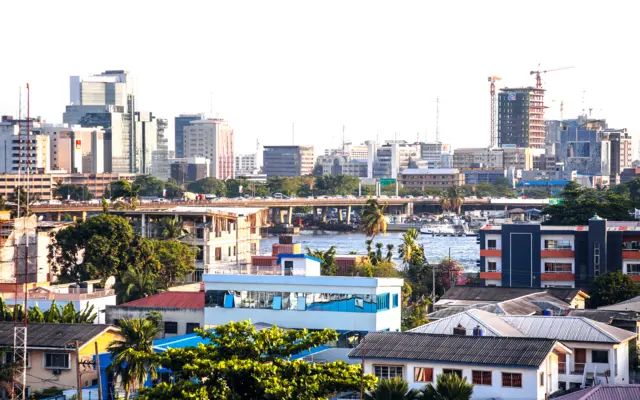 Image source, Getty Images
Image source, Getty ImagesResearchers said Lagos was cheap to live in, but many locals disagree
Nigerians have been disputing research into the cost of living in different cities around the world which suggested that the commercial hub, Lagos, is one of the cheapest places to live.
The Economist Intelligence Unit based the research on, among other things, the availability of food items, transportation, accommodation and the economy in 133 cities around the world.
The Venezuelan capital, Caracas, was listed as the cheapest city in the world, followed by Damascus in Syria and Tashkent in Uzbekistan.
Lagos came sixth in the rankings.
But Lagosians say it's hard to get good accommodation, cheap food and a decent job in Lagos.
Allow X content?
This article contains content provided by X. We ask for your permission before anything is loaded, as they may be using cookies and other technologies. You may want to read X’s cookie policy, external and privacy policy, external before accepting. To view this content choose ‘accept and continue’.
Allow X content?
This article contains content provided by X. We ask for your permission before anything is loaded, as they may be using cookies and other technologies. You may want to read X’s cookie policy, external and privacy policy, external before accepting. To view this content choose ‘accept and continue’.
Allow X content?
This article contains content provided by X. We ask for your permission before anything is loaded, as they may be using cookies and other technologies. You may want to read X’s cookie policy, external and privacy policy, external before accepting. To view this content choose ‘accept and continue’.
Tesfalem Araia
BBC Tigrinya
The people who live near the crash site of Ethiopian Airlines flight ET302 have been mourning for the 157 victims of the crash.
They were the first to arrive at the scene on the morning of 10 March and saw how the plane nose-dived to the ground.
But there is something which went largely unnoticed - the name of the area, which appears to foreshadow the tragic incident.
In the local Afaan Oromoo language the area is called "Tulluu Farraa" which means "bad luck".
"The area earned the name Tulluu Farraa because of weather conditions there" Baatirrii Lemma, a local elder told the BBC.
Mr Baatirrii said that due to high altitude of the place it is hard to know which direction the wind is coming from.
"People called it Tulluu Farraa which means Bad Luck, because it was too cold to live there," he said.
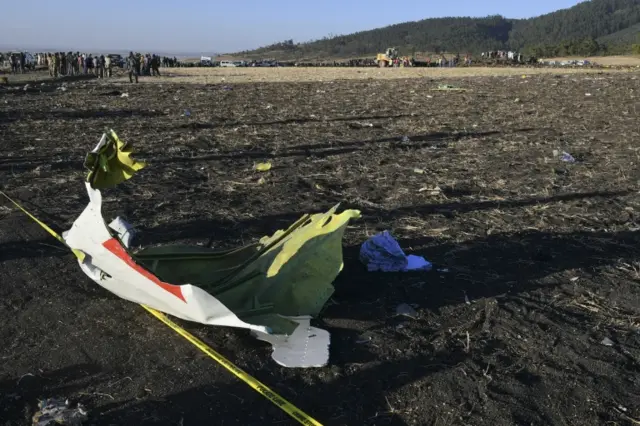 Image source, EPA
Image source, EPAThe plane came down six minutes after take off from Addis Ababa
 Image source, AFP
Image source, AFPSouth African athlete Caster Semenya has been prevented from competing for nearly a year
New rules to reduce naturally high testosterone levels in female athletes have been branded "unscientific".
Last year, athletics chiefs ruled women with levels of five nanomoles per litre or more must have hormone treatment before being allowed to compete.
But experts, reporting in the British Medical Journal, say there is a lack of evidence about testosterone's effects and the cut-off figure is arbitrary.
A decision on the legality of the rules is expected later this month.
The International Association of Athletics Federations delayed implementing its regulations after South African runner Caster Semenya contested the legality of the new rules.
She was banned from international competitions for nearly a year for having testosterone levels above the athletics body's limit for female athletes.
World athletics bosses have previously said they want to protect the sanctity of fair and open competition.
The BBC's Anne Soy has been spending the day at a warehouse in the Mozambican capital, Maputo, where aid is being collected for the survivors of the aftermath of Cyclone Idai.
She's tweeted that there's "an incredible sense of unity" there:
Allow X content?
This article contains content provided by X. We ask for your permission before anything is loaded, as they may be using cookies and other technologies. You may want to read X’s cookie policy, external and privacy policy, external before accepting. To view this content choose ‘accept and continue’.
She says the problem now is how to get the aid to those in need around Beira:
Allow X content?
This article contains content provided by X. We ask for your permission before anything is loaded, as they may be using cookies and other technologies. You may want to read X’s cookie policy, external and privacy policy, external before accepting. To view this content choose ‘accept and continue’.
See here for maps charting how Cyclone Idai tore into southern Africa
 BBC World Service
BBC World Service
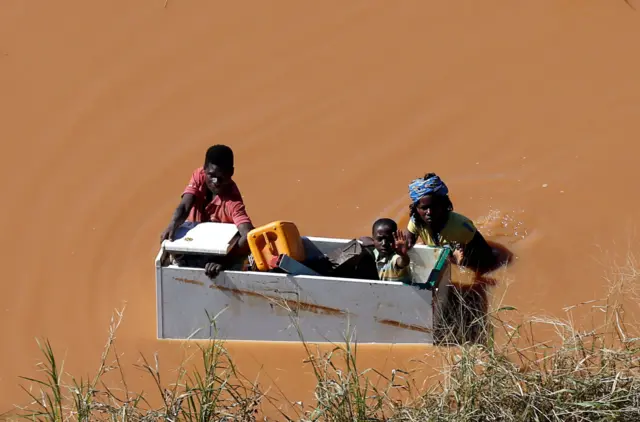 Image source, Reuters
Image source, ReutersThe UN's World Food Programme says 400,000 people have been driven from their homes in Mozambique following Cyclone Idai which struck southern Africa last week.
Entire villages have been destroyed and 100,000 people remain completely cut off.
The latest satellite images of southern Africa show the area left flooded by the cyclone is vast, reaching 3,000 sq km (1,200 sq miles).
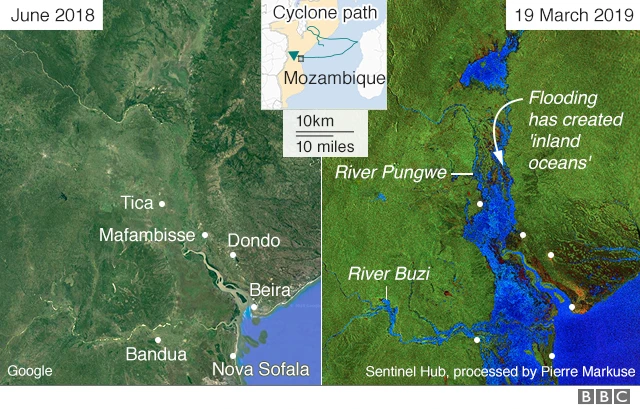
Nichola Mandil
Juba
Renowned South Sudanese civil society activist Peter Biar Ajak has appeared in court for the first time since being detained last July in connection with suspected treason.
He appeared in court in the capital, Juba, alongside other suspects.
During the court hearing, the defence team of the 36-year-old activist demanded that their client be transferred from military detention to a civilian prison, calling his detention "illegal".
His lawyers said their client has been denied proper medication. They also said that he had not been given any privacy to consult with his defence team.
More than 100,000 people have signed an online petition calling for Mr Ajak's release, external.
It says that "his detention serves to highlight the systematic abuse and arbitrary detention of innocent people in South Sudan".
Ethiopian on surviving mosque attack
 Ameyu Etana
Ameyu Etana
BBC Afaan Oromo
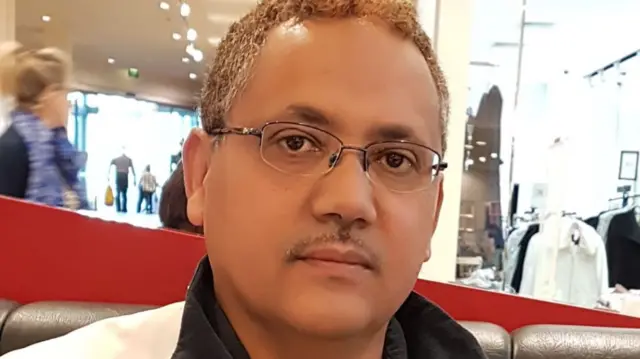 Image source, Abdulkadir Abba Bora
Image source, Abdulkadir Abba BoraAbdulkadir Abba Bora hid under a shelf in the mosque used for the Koran
An Ethiopian man living in New Zealand who survived last week’s attack on a mosque in Christchurch has told BBC how he managed to stay alive by hiding.
Last Friday, 50 people were killed as two mosques were attacked allegedly by a lone gunman.
‘‘I hid under a shelf which is used to put the Koran on. I lay down and pretended I was dead,’’ Abdulkadir Abba Bora said.
He told BBC Afaan Oromoo service that he thought his life was about to end.
‘‘I was thinking of my wife, my children and I cried. I was praying. Now I feel as if I have a second chance at life.’’
The father of three is still traumatised by the attack.
Two other Ethiopians are known to have been injured.
Latest news on the aftermath of the Christchurch attack
Christchurch shootings: New Zealand to ban military style weapons
 Tomi Oladipo
Tomi Oladipo
BBC Africa security correspondent
Counter-terrorism efforts in Somalia are facing a major setback after Somali troops withdrew from several strategic bases in protest over unpaid salaries.
This comes as Kenyan forces have vacated one of their largest bases in Somalia, although there has been no official reason given.
Both countries, together with other international partners, have been fighting to stabilise Somalia amid the threat from al-Shabab militants.
The withdrawals have affected units of the Somali National Army in the north and south of the country.
Earlier this week, Somalia’s Prime Minister Hassan Ali Khaire denied claims that soldiers had not been paid, saying that any that were complaining were those who were not officially registered.
But local media reports say President Muhammad Farmajo has since sent two ministers to assess the situation in Middle Shabelle, one of the affected regions.
The uncertainty has led the UN to dismiss reports that it was planning to evacuate its staff in case security forces in the Somali capital went on strike.
The main fear is that al-Shabab militants will be quick to take advantage of these security lapses, filling the spaces left by the departing troops.
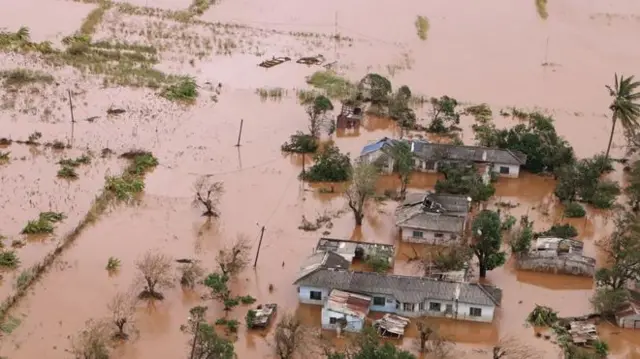 Image source, Getty Images
Image source, Getty ImagesUN envoy on Climate Change Luis Alfonso de Alba has called for greater collaboration between developed and developing countries to effectively deal with the menace of climate change and minimise its impact.
He told the BBC’s Thomas Naadi in Accra that the impact of Cyclone Idai in southern Africa is a reminder of the need to redouble efforts to deal with the problem.
He urged the world to continue to work on reducing emissions.
Mr de Alba was speaking on the sidelines of the Africa Climate Week meeting in the Ghanaian capital.
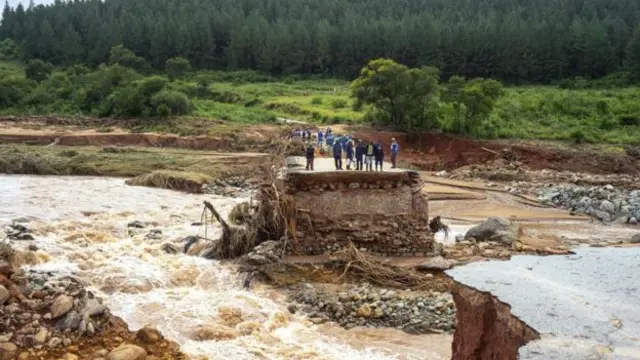 Image source, Gett
Image source, GettExperts have warned that, the destructive power of storms are likely to increase in future as world warms up.
While Cyclone Idai is the seventh such major storm of the Indian Ocean season - more than double the average for this time of year - the long-term trend does not support the idea that these type of events are now more frequent.
"The interesting thing for the area is that the frequency of tropical cyclones has decreased ever so slightly over the last 70 years," said Dr Jennifer Fitchett from the University of the Witwatersrand in South Africa who has studied the question.
"Instead, we are getting a much higher frequency of high-intensity storms."
Climate change is also changing a number of factors in the background that are contributing to making the impact of these storms worse.
"There is absolutely no doubt that when there is a tropical cyclone like this, then because of climate change the rainfall intensities are higher," said Dr Friederike Otto, from the University of Oxford, who has carried a number of studies looking at the influence of warming on specific events.
Read more from the BBC's environment correspondent Matt McGrath
Some challenge the findings of a global happiness report
Larry Madowo
BBC Africa Business Editor
Many Africans on social media are pushing back against a United Nations report on happiness that ranked the continent’s countries poorly compared to Europe.
Mauritius was the highest ranked African nation in The World Happiness Report , externalthat had Finland leading.
Allow X content?
This article contains content provided by X. We ask for your permission before anything is loaded, as they may be using cookies and other technologies. You may want to read X’s cookie policy, external and privacy policy, external before accepting. To view this content choose ‘accept and continue’.
It was compiled from a Gallup poll of about 1,000 people around the world for the years 2016-2018 and is described as "a landmark survey of the state of global happiness that ranks 156 countries by how happy their citizens perceive themselves to be".
Some users on Twitter have dismissed the rankings as irrelevant or biased:
Allow X content?
This article contains content provided by X. We ask for your permission before anything is loaded, as they may be using cookies and other technologies. You may want to read X’s cookie policy, external and privacy policy, external before accepting. To view this content choose ‘accept and continue’.
Allow X content?
This article contains content provided by X. We ask for your permission before anything is loaded, as they may be using cookies and other technologies. You may want to read X’s cookie policy, external and privacy policy, external before accepting. To view this content choose ‘accept and continue’.
Others agree with the findings of the report:
Allow X content?
This article contains content provided by X. We ask for your permission before anything is loaded, as they may be using cookies and other technologies. You may want to read X’s cookie policy, external and privacy policy, external before accepting. To view this content choose ‘accept and continue’.
Allow X content?
This article contains content provided by X. We ask for your permission before anything is loaded, as they may be using cookies and other technologies. You may want to read X’s cookie policy, external and privacy policy, external before accepting. To view this content choose ‘accept and continue’.
The authors of the report say they focused on happiness and the community. The nations at the bottom of the ranking are typically affected by a combination of economic, political and social stresses.
The ranking is produced by the United Nations Sustainable Development Solutions Network in partnership with the Ernesto Illy Foundation.
BBC Money Daily presenter Hudheifa Aden spoke to Hamburg-based Tanzanian comedian Captain Khalid who also rejected the findings but admits that life in Africa isn’t easy:
Tanzanian comedian Captain Khalid rejects World Happiness Report 2019
 Chiagozie Nwonwu
Chiagozie Nwonwu
BBC Igbo
People in Nigeria have been reacting positively to the decision by Italian football club AS Roma to set up a Pidgin Language Twitter account.
AS Roma wrote on its website, external that it launched the Twitter account to improve the connection with fans in Nigeria and neighbouring countries.
The club said that the account, which will be run from Nigeria's commercial hub, Lagos, came about after suggestions from Nigerian fans.
In one of its first tweets it announced "we don show" - or we have arrived:
Allow X content?
This article contains content provided by X. We ask for your permission before anything is loaded, as they may be using cookies and other technologies. You may want to read X’s cookie policy, external and privacy policy, external before accepting. To view this content choose ‘accept and continue’.
AS Roma's popularity in Nigeria soared after the club said it was backing the Super Eagles at the World Cup in Russia last year, after Italy failed to make the finals:
Allow X content?
This article contains content provided by X. We ask for your permission before anything is loaded, as they may be using cookies and other technologies. You may want to read X’s cookie policy, external and privacy policy, external before accepting. To view this content choose ‘accept and continue’.
Nigerians have been tweeting their appreciation:
Allow X content?
This article contains content provided by X. We ask for your permission before anything is loaded, as they may be using cookies and other technologies. You may want to read X’s cookie policy, external and privacy policy, external before accepting. To view this content choose ‘accept and continue’.
Allow X content?
This article contains content provided by X. We ask for your permission before anything is loaded, as they may be using cookies and other technologies. You may want to read X’s cookie policy, external and privacy policy, external before accepting. To view this content choose ‘accept and continue’.
Allow X content?
This article contains content provided by X. We ask for your permission before anything is loaded, as they may be using cookies and other technologies. You may want to read X’s cookie policy, external and privacy policy, external before accepting. To view this content choose ‘accept and continue’.
AS Roma says the Pidgin Twitter account brings the number of languages with which it communicates with fans on social media to 13.
The other languages are: Italian, English, Arabic, Indonesian, Spanish, French, Portuguese, Bosnian, Turkish, Dutch, Farsi and Chinese.
 Elias Hordofa
Elias Hordofa
BBC Afaan Oromoo
Every day, Mulunesh Bejiga, who's in her 60s, visits the site of the Ethiopian Airlines crash near Bishoftu, which killed all 157 people on board.
"I go to the site to mourn with family members. The grief hasn't gone away yet," she told BBC Afaan Oromoo's Bizuwork Olana.
"How can we get rest after people were lost there? Their blood is a pain for us," she added.
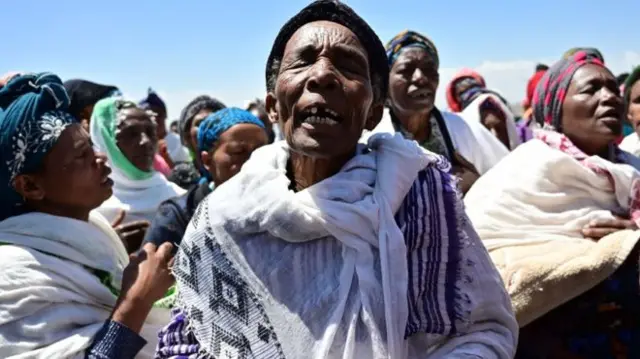 Image source, Getty Images
Image source, Getty ImagesMrs Mulunesh lives 2km (1.2 miles) from the site of the crash, which is about an hour's drive from the capital, Addis Ababa.
"That day what we saw were only scattered papers. There was nothing that looked like a human," she said.
Mrs Mulunesh struggled to sleep or eat after the crash - and has still not come to terms with the disaster.
"Even the coffee doesn't taste the same anymore," she said, describing the disaster as the saddest moment of her life.
A memorial service, steeped in religion and tradition, will be held at the site of the crash on 19 April, marking 40 days since the accident.
The UN's World Food Programme (WFP) estimates that 200,000 people affected by Cyclone Idai will need food aid for the next three months, Reuters news agency reports.
"It looks like the situation in Chimanimani - the hardest hit district in Zimbabwe - is very bad. Some 90% of the district has been significantly damaged," Reuters quotes spokesman Herve Verhoosel as saying.
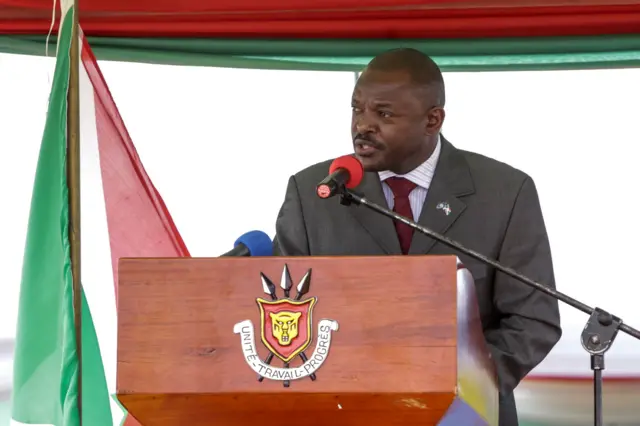 Image source, STR/AFP/Getty Images
Image source, STR/AFP/Getty ImagesThree teenagers await trial for doodling on President Pierre Nkurunziza's photo on schoolbooks
Three schoolgirls in Burundi risk being jailed for five years for scribbling on President Pierre Nkurunziza's photo in their textbooks, says campaign group Human Rights Watch , external(HRW).
HRW said the three were arrested last week and are awaiting trial after being charged on Monday with insulting the head of state.
The agency also said the authorities had initially arrested seven schoolchildren last week, but four of them, including a 13-year-old, were freed immediately.
The remaining three, all under the age of 18, spent the weekend in prison.
HRW director for Central Africa Lewis Mudge said the father of one of the girls said on Saturday they were "too scared to eat".
Mr Mudge added: "With so many real crimes being committed in Burundi, it’s tragic that children are the ones being prosecuted for harmless scribbles.
"Authorities should focus on holding perpetrators of serious rights violations to account instead of jailing schoolchildren for doodles."
The rights activist has tweeted a cartoon and a picture of Mr Nkurunziza that has been scribbled on to show his opposition to the arrests.
Allow X content?
This article contains content provided by X. We ask for your permission before anything is loaded, as they may be using cookies and other technologies. You may want to read X’s cookie policy, external and privacy policy, external before accepting. To view this content choose ‘accept and continue’.
Allow X content?
This article contains content provided by X. We ask for your permission before anything is loaded, as they may be using cookies and other technologies. You may want to read X’s cookie policy, external and privacy policy, external before accepting. To view this content choose ‘accept and continue’.
In 2016, intelligence officers in Burundi , externalarrested eight secondary school students and accused them of insulting the head of state after they drew and wrote phrases like "get out" or "no to the third term" on a picture of Mr Nkurunziza in a textbook.
Hundreds of children from several school were also expelled the same year for defacing the head of state's photo in schoolbooks.
Mr Nkurunziza won a heavily disputed third term in 2015.
In Mozambique, aid contributions for the survivors of Cyclone Idai are coming in at a relief centre in the capital, Maputo.
BBC producer Joe Inwood has shared this video of the human chain formed to bring the sacks of food that have been donated into the warehouse:
Allow X content?
This article contains content provided by X. We ask for your permission before anything is loaded, as they may be using cookies and other technologies. You may want to read X’s cookie policy, external and privacy policy, external before accepting. To view this content choose ‘accept and continue’.
The BBC's Ann Soy is also at the relief centre and says that it is staffed by volunteers who have formed a group called United for Beira.
Aid agencies in Mozambique are racing against time to reach survivors of Cyclone Idai in the port city of Beira. They say they have only two to three days of clean water left.
Mozambique had borne the brunt of flooding from rivers that flow downstream from neighbouring Zimbabwe and Malawi.
Rotafina Donco, the Oxfam programme manager in Mozambique, spoke to BBC Newsday's James Copnall:
Cyclone Idai has turned the city of Beira into ‘an island’
Tesfalem Araia
BBC Tigrinya

Pieces of the emperor's hair locks were taken as trophies
The British National Army Museum has returned to the Ethiopian government the hair locks of Emperor Tewodros II - more than 150 years after they were taken during the invasion of the African state.
Ethiopians sang and danced as the two pieces of hair were handed over to Culture and Tourism Minister Hirut Weldemariam at a ceremony in London.
“It a source of a good fortune and pride to stand here today to receive the remains of one of Ethiopia’s most beloved and admired emperors,” she said.
And she applauded the museum’s “brave and principled decision to bring the emperor’s hair to its rightful home”.
Museum director Justin Maciejewski said the governing body of the museum took into account the “unique” nature of the pieces of hair.
The museum had always considered the hair as an “object” and had to reclassify them as “human remains” in order to hand them over, Mr Maciejewski said.

Ethiopia has not yet said where the locks of hair will be kept
After his army was defeated by British troops under the command of General Napier at the battle of Maqdala in 1868, Emperor Tewodros killed himself rather than surrender.
British troops then cut his hair to keep as a trophy.
The two pieces of hair were handed to the museum by unknown private collectors 60 years ago.